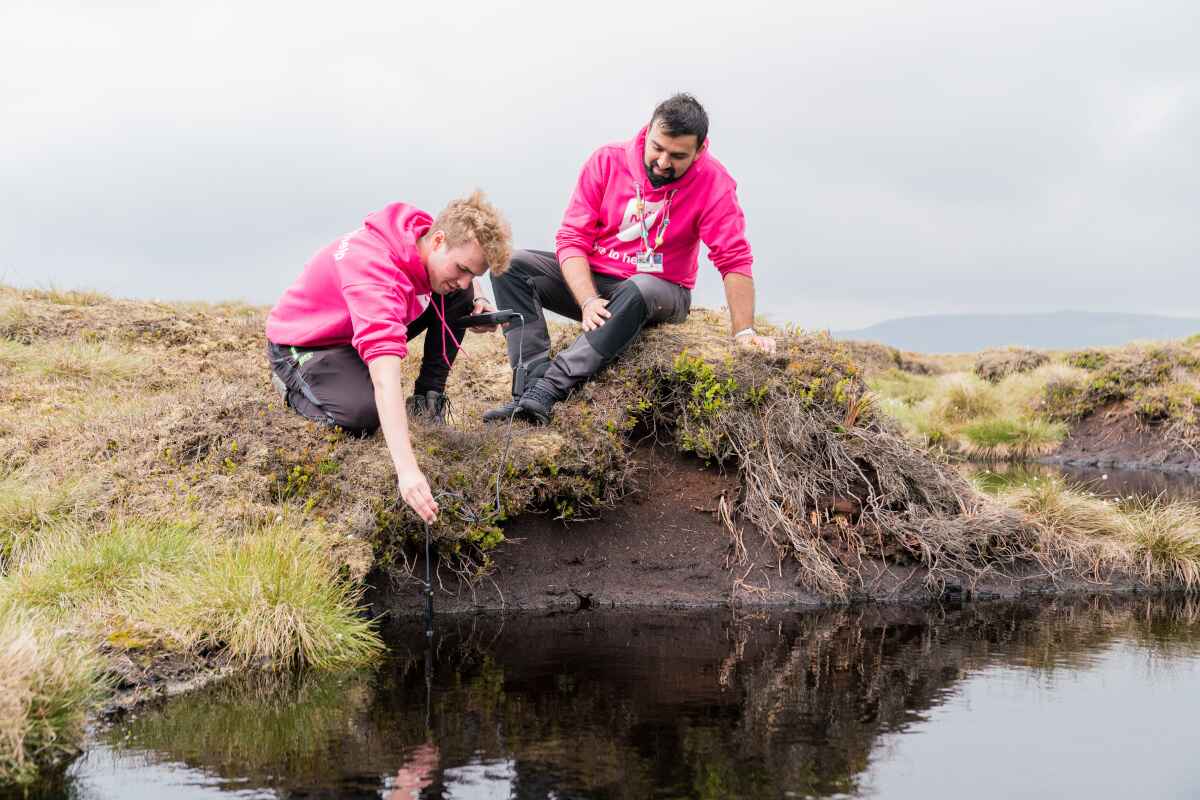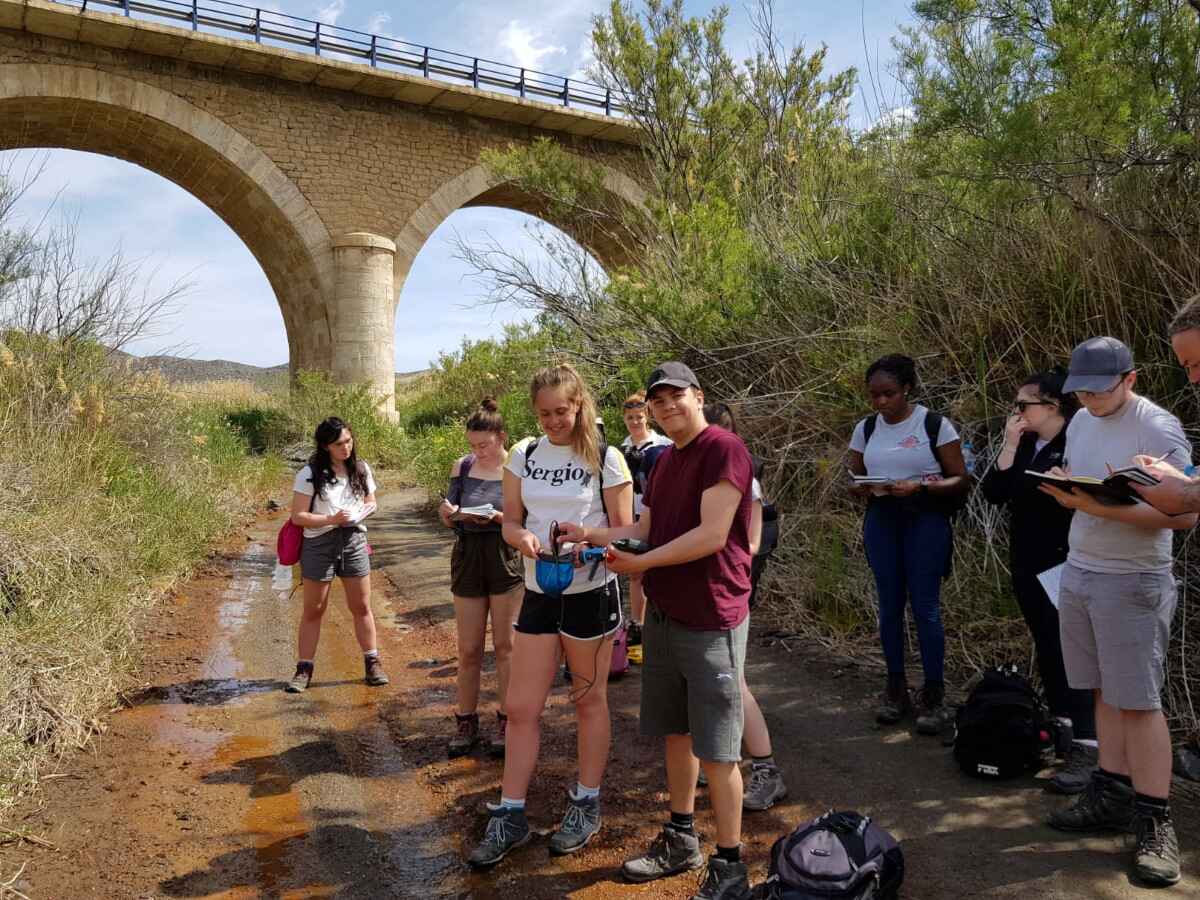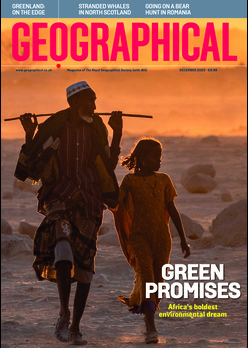- Sponsored content

Study a course in Geography, Environmental Science or Climate Change at Nottingham Trent University and become a leader of change for the Earth’s future.
The need to address the climate emergency is now clear and pressing. A key part of NTU’s response is ensuring people have the knowledge, skills and attributes they need to build a green, low emission and climate-resilient future.
Here at NTU’s School of Animal, Rural and Environmental Sciences, we’re committed to developing industry-ready, passionate graduates who can answer the demands of a changing job market.
Geography, environmental science and climate change are all fundamental to our understanding of the world. Experts in these fields are now required to help lead within business, government and the public sector, non-governmental organisations and research.
Our geography and environmental science courses are professionally accredited by the Royal Geographical Society and Institute of Environmental Sciences, respectively; and bridge the gap between social and natural sciences. You’ll study how and why the world is changing – both locally and globally. Meanwhile, our climate change course explores the climate emergency and how to find solutions to global environmental challenges.

Courses
BSc (Hons) Geography/ Geography: Physical Geography
Taking an integrated approach to studying the relationship between people and the physical environment, this course is for those interested in the Earth and its communities, exploring the key role that geographical concepts and techniques have in solving environmental problems, social inequalities and improving the quality of life and well-being for communities across the planet.
BSc (Hons) Environmental Science
A multidisciplinary degree, including the scientific study of the physical, chemical and biological processes operating on and within the Earth, this course explores environmental issues including natural resources, waste management, conservation and sustainability. Other areas of focus include climate change, renewable energies, environmental hazard management, and law and policy.
Immersing you in the interactions between climate, ecosystems and landscapes, this exciting new course evaluates the human impacts on biophysical and climate systems and the reciprocal impacts on human activity; as well as exploring the effectiveness of different policies, the performance of policy interventions and adaptation strategies within debates about environmental governance and justice.
Our courses all include the option to undertake a placement year in industry at the end of your second year of study. This work experience will enable you to develop your skills and put your knowledge into practice in a working environment.

Taster session
If you’re wondering what it could be like to study a course in geography, environmental science or climate change, click the video below to take part in our virtual Google Earth taster session.
Facilities
Our courses are based at NTU’s Brackenhurst Campus, a rural 200-hectare country estate and working farm, providing the perfect outdoor classroom for studying both the physical and human elements of these courses on your doorstep.
The estate not only provides a wealth of practical experience but is also an excellent resource for your research and field work, using any of our facilities – including our on-site weather station and our natural flood management scheme, which runs through the campus.
There’s a huge range of cutting-edge technology and equipment that you will use to support your learning and research on these courses, including state-of-the-art handheld and differential GPS, tools used for a range of surveying tasks, and technology such as terrestrial laser scanners and drones.

Our Geospatial computer laboratory is a modern, 60-seated computer facility, perfect for GIS work. NTU uses ArcGIS, a commercial industry-standard framework used for gathering, managing, and analysing data on spatial location. It can organise layers of information into visualisations using maps and 3D scenes.
Additionally, we have dedicated analytical laboratories where you can explore both environmental and biological indicators using equipment such as our HACH spectrophotometers and a Thermalox Total Organic Carbon analyser to examine water quality; and the use of a laser diffraction particle size analyser to analyse soil.
Fieldwork/trips
All three courses include residential and non-residential field work and trips. These underpin the theory studied by giving our students a visual context and the best practical understanding of what they are learning about; both nationwide and internationally.
In recent years, we have offered trips to UK locations ranging from the local areas of Nottinghamshire and Derbyshire to North Wales, Scotland and the Lake District; as well as overseas opportunities, including Spanish destinations Almería and Tenerife; Italy, and even further afield to Iceland.
At the School of Animal, Rural and Environmental Sciences, we’re committed to providing you unique opportunities like these, as well as ensuring all our fieldwork is sustainable, accessible, and ethical.

Visit
If you’re interested in studying a course at our idyllic Brackenhurst campus, book and come along to an open day to find out more, ask any questions you have and to explore what could become home during your time with us. Take a look at our upcoming open days.
In case you wanted to have a look around in the meantime, we have a virtual tour of the University available.








